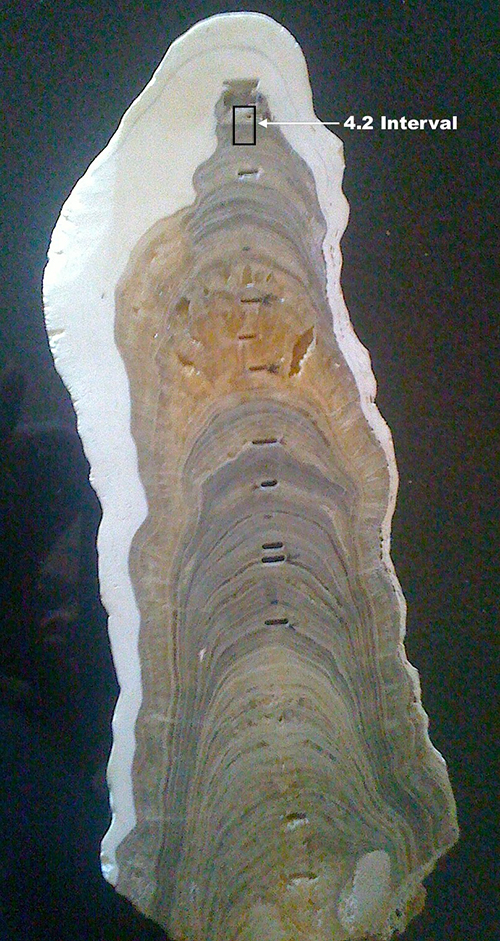
By Jim Brace-Thompson
New Geological Age Named: Welcome to the Meghalayan!
Scientists have been debating a new name for our current geological epoch, namely the “Anthropocene,” to reflect human influence on our planet since 1950. While that name continues to be debated, one new name was officially announced in July by the International Commission on Stratigraphy: the Meghalayan age.
To earn a name, a proposed geological age must have a marker in the rock record. This one’s marker comes from oxygen isotopes in a stalagmite from India.
The Holocene Epoch is now officially divided into three ages: Greenlandian (starting 11,700 years ago as massive continental glaciers retreated), Northgrippian (starting 8,300 years ago at the start of a renewed cooling trend), and Megahalayan (starting 4,200 years ago with a drought that saw the decline of several ancient civilizations).















